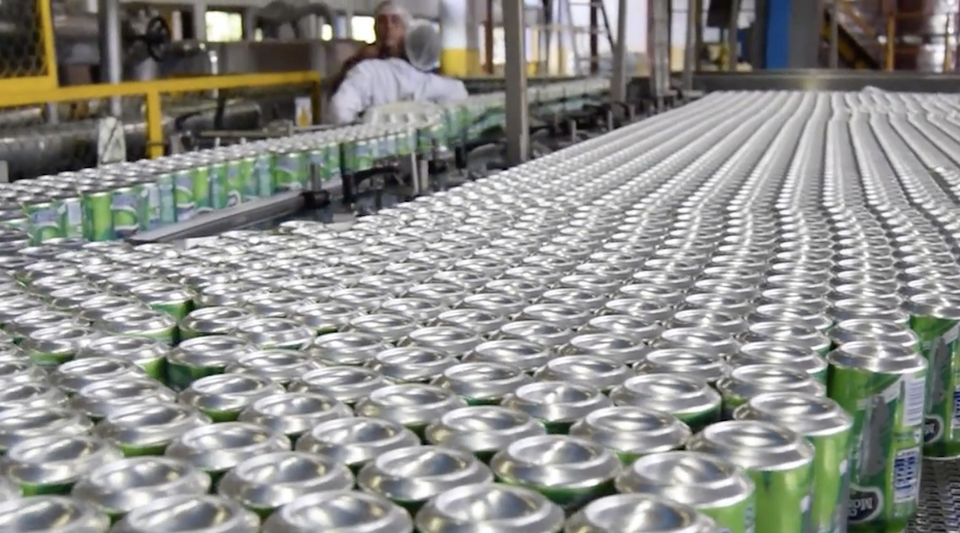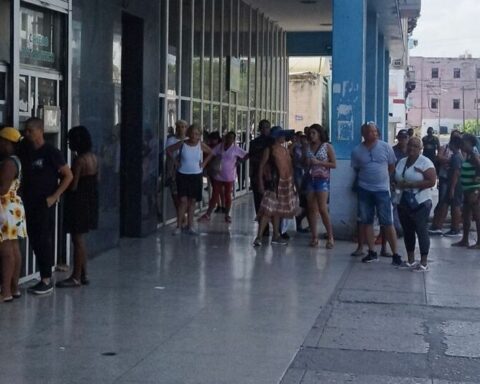Since the beginning of January, the official press has reported the lack of cans and containers for soft drinks in Los Portales, the main company on the island, associated with Nestlé. The factory, which renewed its machinery in 2018 after Swiss investment, exceeded 278 million units that year to just 86 million in 2021. But she is not the only one experiencing a disastrous moment. Las Lomas manufactured 184,000 boxes of the 4,500,000 planned for 2021 and a similar situation is expected this year.
Edelvy Valdivia Gonz, deputy director of the company, has spoken with Cubadebate, just two weeks ago rechecked the bad data of Los Portales, offered in January, to warn that 2022 is presented without changes. This Thursday deals with Las Lomas, which produces Fiesta and Dely soft drinks and which, along with Los Portales and Ember, is one of the three main suppliers of packaging on the Island.
The lack of liquidity and the high costs to import cans are among the causes cited by the official to justify the debacle. “The intensification of the blockade, the contraction of the markets, the shortage of aluminum and the increase in its prices in the international market have made it impossible to have the necessary foreign currency to increase the production levels that had been planned,” Valdivia indicates.
Although, following the official discourse, he puts the US sanctions and the pandemic ahead, with the disappearance of tourism as a consequence, the official does not hesitate to point out the Planning Task as one of the great purely national distortions that strangles the Island. The process caused “a marked increase in costs, since the production of soft drinks has a high percentage of imported inputs and their prices multiplied by 24,” he says.
Valdivia Gonz finds more internal reasons to blame: the interruption of liquidity-backed payment mechanisms
Valdivia Gonz finds more internal reasons to blame: the interruption of liquidity-backed payment mechanisms. The move, which was part of a resolution of the Ministry of Economywas intended to provide payment guarantees to companies, but lack of solvency led to its suspension.
“Although the company started almost from scratch, it managed to start producing and selling a not very large level of products in the best markets and get paid with the backing of a liquidity letter to start maintaining a productive cycle. But later, due to lack of liquidity due to to the crisis and the pandemic, it was interrupted”.
Las Lomas only produces canned soft drinks, whose international outlook is already bad due to the high prices of aluminum. “On the other hand, shipping companies, due to the blockade, are limited to disembarking through Cuban ports, which forces us to hire several to import raw materials. Added to this is the limitation on the acquisition of spare parts for scheduled maintenance and the breakages that have occurred,” he continues.
The company has tried, says the manager, to expand its market through the sale on-line, that provides the necessary foreign exchange to continue buying raw materials. In addition, he has begun to sell carbonated soft drinks in bulk in Cuban pesos, a product that, according to Valdivia Gonz, has been well received.
Las Lomas is looking for more solutions, such as the acquisition of a filling line for dispensed soft drinks or production in other systems, such as nylon bags.
However, bulk soft drinks lend themselves more to adulteration, a manipulation that reduces its quality and often causes consumer rejection. Stored in tank trucks or in so-called thermoses that are also moved on vehicles, this type of dispensed beverage has traditionally been the preferred target for the diversion of resources.
Hygiene is another of the weak points of bulk sales. Customers often complain about the lack of cleanliness of the tanks, handling without taking into account hygienic standards with the consequent gastrointestinal problems. This form of sale also forces the buyer to bring their container, so it works in neighborhoods or around homes, but less so in recreational places where many do not carry a bottle or their own glass.
________________________
Collaborate with our work:
The team of 14ymedio is committed to doing serious journalism that reflects the reality of deep Cuba. Thank you for joining us on this long road. We invite you to continue supporting us, but this time becoming a member of our journal. Together we can continue transforming journalism in Cuba.








